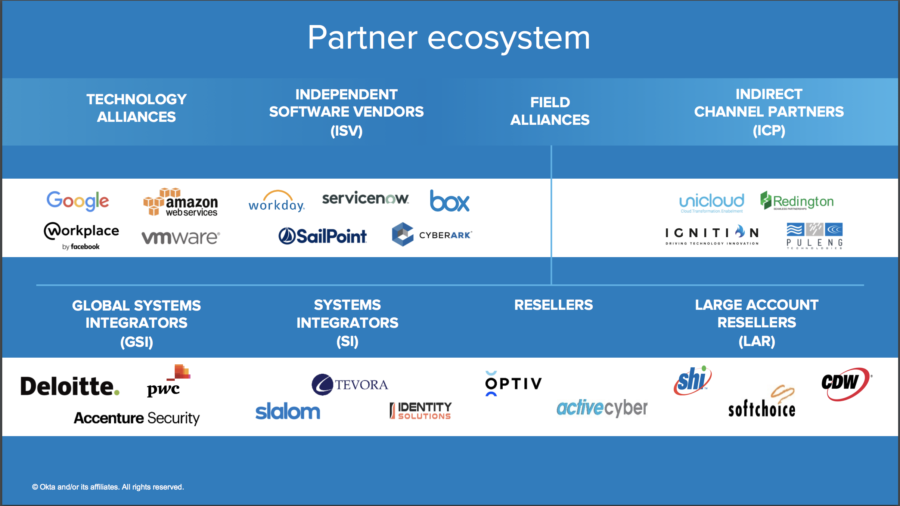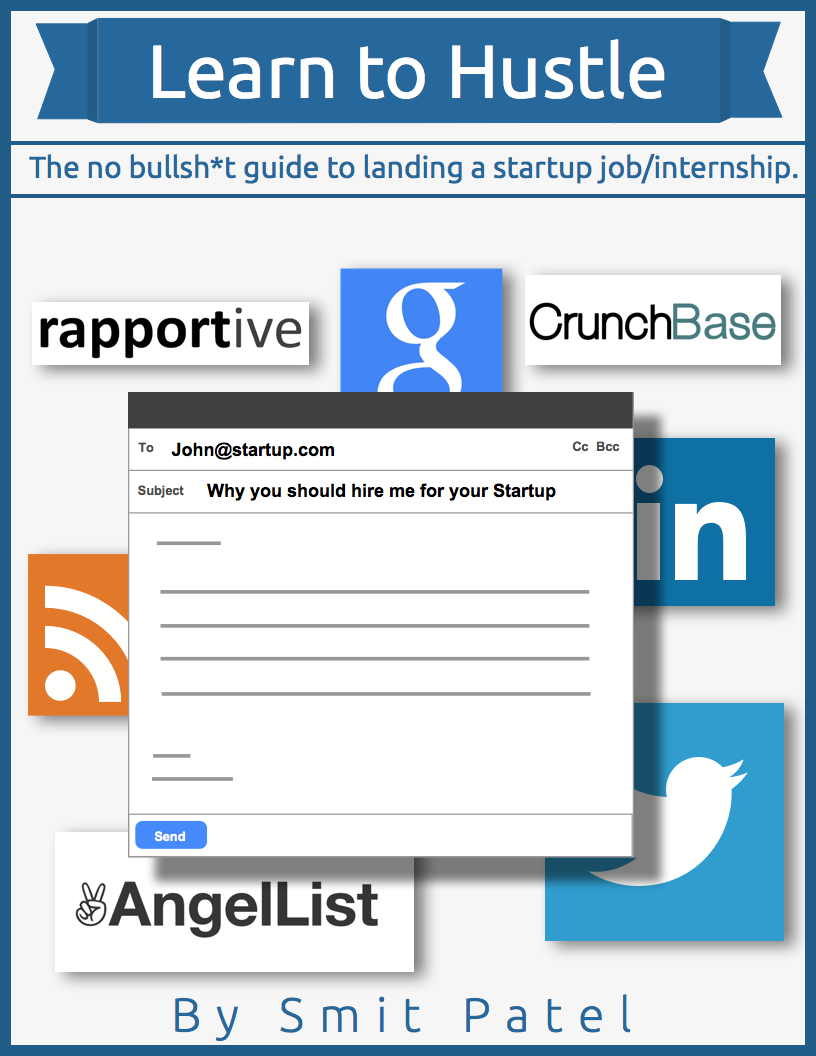Channel? Alliances? It’s where bad sales reps get hired. This is what the historical perception of those teams have been.
While it’s foolish to generalize every person in that role, truth is most of them relied on resellers to push their product. This worked great in legacy businesses since they wanted to procure new products through resellers that they had built long lasting relationships with to cut risk.
But…this buying process has since been disrupted by SaaS and Cloud products. From the person with the hands on keyboard to the CIO, everyone is purchasing solutions collectively as well as individually. Traditional Resellers are no longer needed as much because products can be simply purchased with a credit card and doing month-to-month contracts.
Companies are now forced to look at other channels for revenue. Studying successful SaaS companies of today and based on my experience, two channels will slowly replace resellers:
- Solution Partners
- Integration Partners
Solution Partners
Solution partners act as an extension of the sales/CS/support teams, taking away the burden of recruiting and salaries.
They wrap their consulting services around SaaS products and earn a commission/referral fee for the sale. In exchange, they they are responsible for sales, tier 1 support and ongoing customer success. In a way they are resellers but with much more skin in the game.
It’s a win-win for the SaaS company as well as the partner. The SaaS company gets to grow in areas where they don’t have expertise in and the partner gets to be the product thought leader in the niche, whether it’s a particular geo or market (SMB, Mid-Market, Enterprise etc.)
Twilio
The company had limited expertise selling to Enterprise clients so they decided to launch a focused partner program targeting System Integrators and Solution Providers. They’re calling it $1.45T opportunity ;)
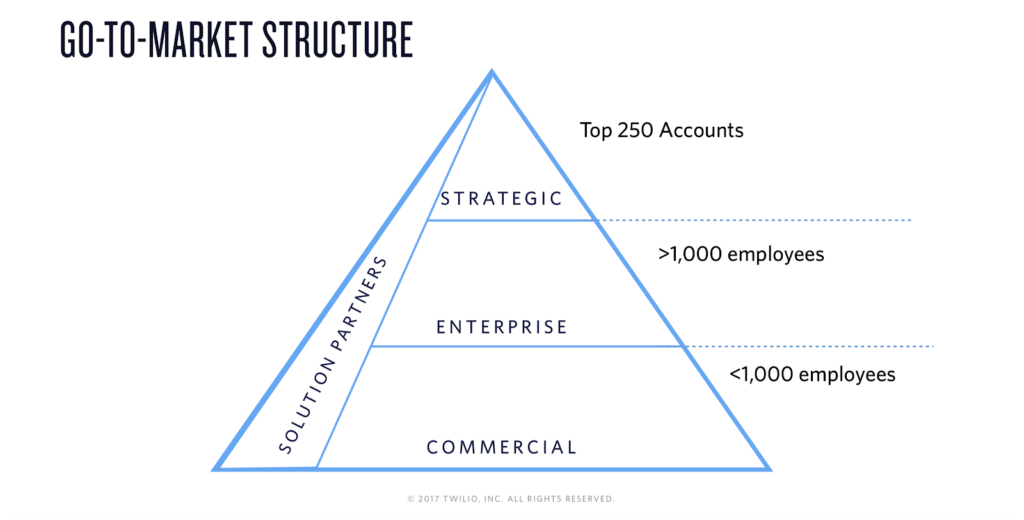
Zendesk
Zendesk recognized in their 2017 annual report that their Enterprise clients needed more support than their smaller clients. As a result, they hired an executive in 2018 to expand their partner strategy with a focus on SI’s.
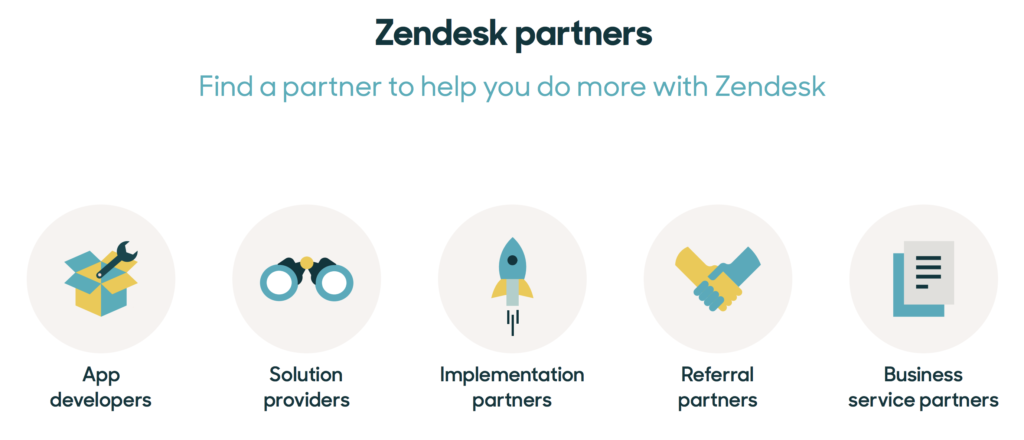
Integration Partners
Integration partners create a deeper value prop for respective products and allow them to become more “sticky.”
SaaS companies often have an open API or a platform product strategy which makes it easy for their products to integrate with others. As SaaS stacks of companies get bigger, this approach allows two products to be gelled together for a unified customer experience.
Atlassian
Their marketplace has generated over $250M since the launch in 2012. It’s a triple win for Atlassian because developers are making money building add-on’s to their products while reducing R&D costs for them ultimately making their products more compelling to the users.
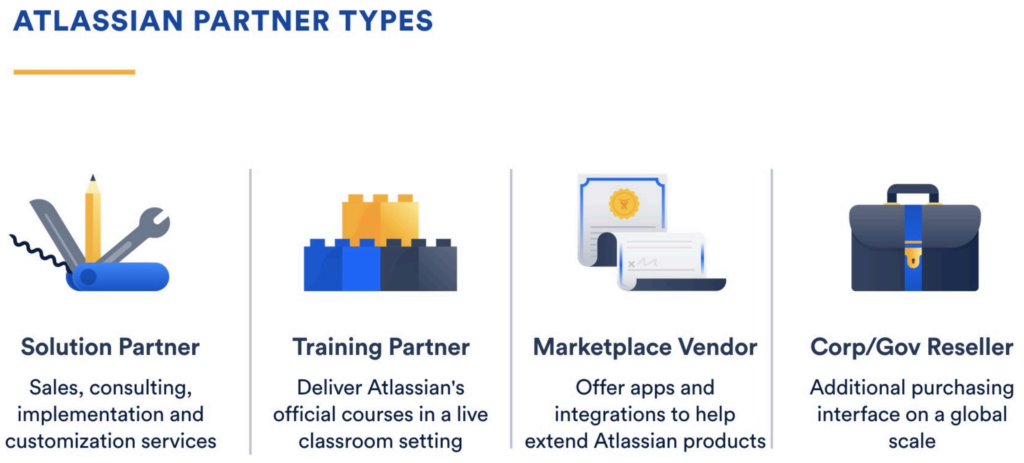
Dropbox
While their competitor Box has taken a traditional B2B approach to growth with Enterprise/Inside sales, Dropbox was able to get 500K+ developers to integrate to their platform. Both companies are successful in their own way but proves that integrations can bring serious $$.
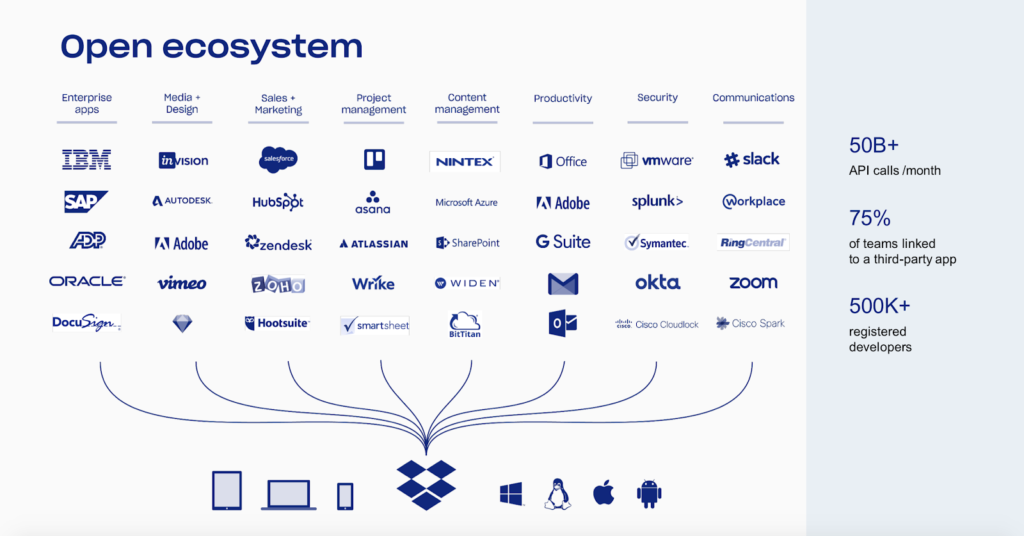
What an ideal partner strategy looks like – Okta
Their partner ecosystem shows the evolution of a traditional partner strategy being focused solely on resellers to a modern mix of cloud alliances, ISV’s, SI’s, and resellers(for large accounts).
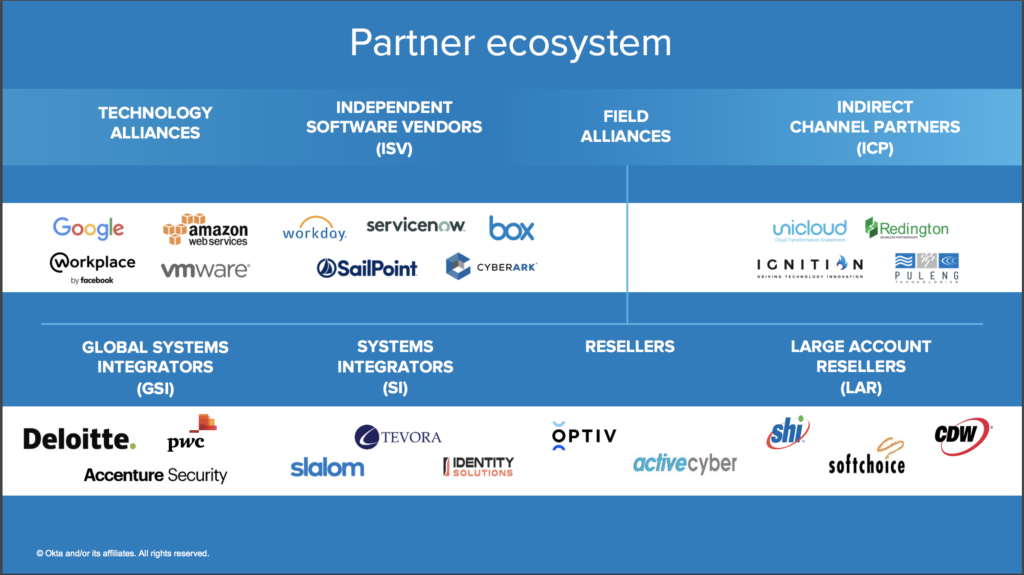
Want to trade notes on partnerships/channel or want feedback to grow your SaaS partner strategy? Ping me here.
